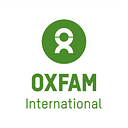Life in the Recovery Lane: What It’s Like to be a Woman in Post-IS Mayadin, Syria
This is to all men, women and children fighting for survival.
Two years after the ousting of IS from Mayadin, east of Deir ez-Zor in Syria, the situation is dire. As I travelled through the town, I couldn’t fail to notice the devastating impact of the conflict. The intense fighting has left it in in total ruin.
Among the shattered buildings, destroyed water and electricity infrastructure and broken streets — you can sense life is slowly returning. Hanging laundry lines amid rubble and ash, poorly-stocked shops opened in the remains of buildings and children playing with whatever makeshift toys available, from empty tin cans to metal pieces left behind.
Mayadin witnessed a major turn of events as IS grasped control over the town in mid-2014, making it their ‘safe haven’ and financial capital.
For three years, people in Mayadin lived under IS’s rule of terror. Though thousands fled from Mayadin, some people could not escape.
I stood in the middle of what once was the second most populous town in Deir Ezzor and sensed the emptiness.
Before IS, Mayadin was known for its agricultural production, filled with vast acres of fertile, green lands and rich livestock. Located on the western bank of the Euphrates River, Mayadin was once the breadbasket of nearby towns and it thrived on its wealthy agro-economy.
But all that changed under IS, particularly for the women there.
They were forced to stop school and work. Hawra is among the many women who was forced to quit school and marry.
“I had a real passion for education. I had big dreams of becoming a nurse. Now, I channel that passion into growing our garden’s orange trees. That’s all I have left,” Hawra told me.
The constant fighting under IS and continuous bombardments paralyzed the productive economic sectors of Mayadin, with burnt agricultural lands and demolished irrigation channels.
Combined with drought, water has become scarce, and safe, clean water has become a commodity.
Rebuilding after IS
Two years after IS, there has been some improvement. Agriculture production is slowly gaining momentum, but the farming communities in the town remain distressed.
Mayadin inhabitants are at the brink of food insecurity due to dwindling production, shortage of functional bakeries, and high food prices.
The destroyed waste management systems have further added to the struggle, with serious health concerns on the rise, such as Leishmaniasis, a skin disease caused by a microscopic parasite spread by sand flies, widespread in Mayadin today.
Medical facilities are almost non-existent, and access to healthcare has become rather impossible. Khansa, a 34-year old woman shared her story of how expensive healthcare has become as most inhabitants, who must travel to the city of Deir Ezzor, around 40 kilometres, to access medical services.
“Travelling to and from Deir Ezzor city costs around 3,000 SYP (approx. USD $3), and the doctors charge around 2,000 SYP for a regular check-up. I don’t have that kind of money, so I only prioritize my son’s doctor visits,” she explained.
Khansa used to work on her family’s farmland, but their land was destroyed under IS. Today, only a small portion of their land is suitable for farming.
“We live off of debts throughout the year and pay them off during the agricultural seasons when we sell our produce,” she continued.
Conversations with women in Mayadin were bittersweet. Bitter to hear what they went through. Sweet to hear how they made it and their willingness to survive.
Somehow still smiling
These women are very resilient.
“You are probably wondering how I am still smiling. This is what makes me want to fight for life,” said one woman, carrying her 10-day old baby wrapped in wool blankets to protect from the cold.
Despite the hardships, I sensed the women’s urge to rebuild their lives. Though living in Mayadin has become a game of survival, its women have become warriors.
Of all the stories heard, the most beautiful are the stories of persistence. You can see it on their faces — these women can turn tides.
They don’t give up, they pull through despite everything. They believe in second chances and silver linings.
This entry posted 6 March 2020, by Aline Yacoubian, Emergency Food Security and Vulnerable Livelihoods (EFSVL) Policy Officer, Oxfam in Syria
